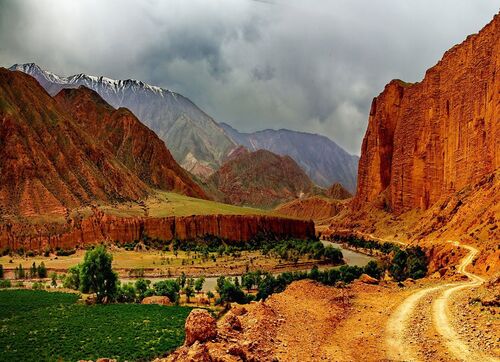

The verifiable scenery of Uzbekistan.
Genetic verification recommends that Central Asia may have been the radiation place for current individuals since Africa's appearance 100,000 years earlier. Whether or not this is substantial, humanity's arrangement of encounters in the area returns something like 6,000 years. Stone mechanical assemblies and milestones have been found in Tashkent, Bukhara, Samarkand, and Ferghana Valley in Uzbekistan.

The initially known metro foundations in the locale are Sogdiana, Bacteria, and Khoram. Alexander the Great vanquished the Sultanate's domain in 327 BC, which added Bounty to his pre-vanquished space. This tremendous piece of present-day Uzbekistan follows as far as possible back to 150 BC. These meandering families lost the Hellenistic control of Central Asia.
In the eighth century AD, the Arabs vanquished Central Asia, the district where Islam came. The Persian Samani organization included the district after around 100 years, in any case, following being in power for pretty much 40 years, the Turkish occupation abilities overpowered it.
In 1220, Genghis Khan and the Mongol fighters assaulted Central Asia, vanquishing the whole locale and decimating huge metropolitan networks. The Mongols were eliminated by the Timor in 1363, known as Tamerlane in Europe. Timur set up his capital at Samarkand and finished the city with inventive and configuration works, which he won. His family members, the Mughals, vanquished India and set up the Mughal Empire in 1526. The main Timothy Empire was dissolved in 1506.

After the fall of the Timurians, Central Asia was parceled into metropolitan states under Muslim rulers known as "Khans". Uzbekistan was the most momentous Khiva Khanate, Bukhara Khanate, and Kokand Khant around then, at that point. The Khans represented Central Asia for close to 400 years, until the 1850s and 1920s the Russians accepted accountability for each other.
The Russians included Tashkent in 1865 and regulated over Central Asia in 1920. Until 1924 the Red Army in Central Asia was busy smothering the uprisings. Then, Stalin isolated "Soviet Turkestan", making the lines of the Uzbek-Soviet Socialist vote-based framework. The other "- steins." In the Soviet time frame, Central Asian republics were essentially used for cotton improvement and nuclear equipment testing; Moscow didn't place much in their new development.
On August 31, 1991, Uzbekistan announced its independence from the Soviet Union.
Markethive has infused the power of Inbound Marketing into the News Feed and infused the power of the social network into the Inbound Marketing platform, which means it’s an enhanced Social Network hybrid. It’s where the needs of the entrepreneur, marketer, business, and corporation are not only met but put at the forefront. Click Here to sign up for free and get 500 Hivecoin airdrops.

